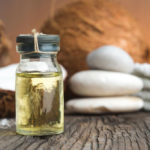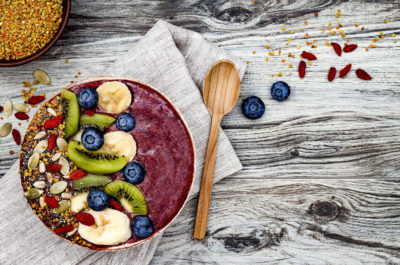Nasal Polyps are benign, soft and painless growths on the lining of the nasal passageway or sinuses. They are shaped like teardrops and hang down, often causing post nasal drip. They can be associated with asthma, infections, allergies, drug sensitivity or even immune disorders. Polyps can also result in response to chronic inflammation. Nasal polyps symptoms include a runny nose, facial pain or headache, snoring, loss of sense of taste, continued stuffiness, and nosebleeds.
There are prevention methods to cope with nasal polyps like avoiding nasal irritants, having good hygiene, managing allergies and asthma, and using a humidifier. When left untreated, nasal polyps can develop into chronic rhinosinusitis. In addition to medications and possibly surgery to treat polyps, doctors often recommend avoiding the following foods:
1. Refined sugar
Nowadays, sugar is found in almost everything we eat, from chocolate to cereal to salad dressings. Intake of a large number of sugars, from white bread, rice or baked goods, causes a lot of health issues like obesity, but it also causes inflammation. The inflammation occurs as a response from a fungal yeast growth in the body. This results in nasal tissues to swell and block drainage which triggers a bacterial infection and nasal polyps symptoms
2. Spicy foods
Spicy foods trigger histamine production within the body when consumed in larger amounts. This results in a runny nose. Histamine is usually produced in response to an allergic reaction. When histamine is produced it causes the tissues in the nasal passage to swell up and become watery.
3. Milk
Dairy products have properties that thicken the mucus in the airways, which means it takes much longer to leave your body. This causes acute congestion, as a result. Whole milk, for example, not only thickens the mucus, but also increases the production at which mucus is produced. Ice cream contains casein which causes the nasal passage to be congested. This thick mucus takes longer to exit the body, which means any allergens and pathogens stay in the body for much longer.Chronic rhinosinusitis occurs as a result.
4. Wine and alcohol
It is known that alcohol has inflammation properties. Wine, on the other hand, also contains histamine which causes the nasal tissues to swell. Beers and other types of alcohol have gluten, which may cause a reaction in the body when consumed. The nose becomes stuffy and the face gets flushed. This is known as an alcohol allergy, as well as, alcohol intolerance. It is a genetic condition where the body is not capable of breaking down alcohol.
5. Red Meat
The high protein in red meat can lead to a build-up of mucus in the body, which affects the sinus and irritates the nose. Lean meat is suggested as an alternative.
6. Pizza
Most of the ingredients used to make pizza can cause the body to produce excessive histamine. These ingredients include cheese, gluten, and tomatoes. Tomatoes are known to be very acidic which affects acid reflux because the acid is traveling down the throat which irritates. Tomatoes trigger histamine to be released and the high level of histamines causes the body to produce more mucus. Even though tomatoes have anti-inflammatory properties, it is best to avoid them.
7. Some fruits
Regardless of the health benefits of eating bananas, they can trigger increased levels of histamine. This causes the body to twice as hard to fight off pathogens. Strawberries, oranges, and papaya also release histamines, which can irritate the nose and cause post nasal drip.












